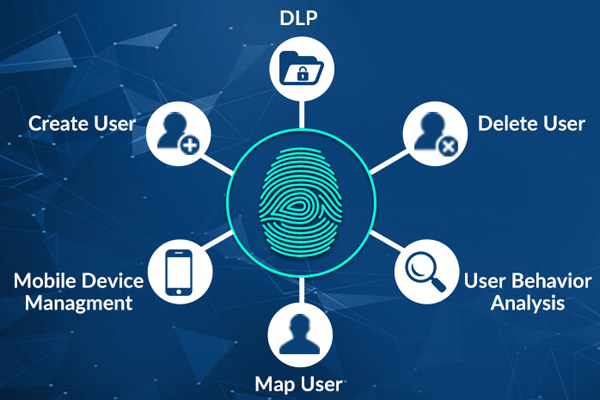Uses and benefits of identity management using blockchain technology
As digitization enables the creation of practical and verifiable identities, ensuring the confidentiality of sensitive information is imperative. Identity management, one of the key aspects of digital identity, is the technology that someone uses to gain or deny access to services or organizational systems.
Possible uses and advantages of identity management with blockchain
Introduction
Having information about you, guest posting about your looks, your traits, your skills and the traits that set you apart from others are an integral part of the digital economy we live in today. Today, digital ID is preferred over traditional identification methods for a myriad of reasons, ranging from easy access to all online services, to streamlined processes and accuracy, to better privacy. As digitization enables the creation of convenient and verifiable identities, ensuring the confidentiality of sensitive information has become an absolute necessity. Identity management, one of the key aspects of digital identity, is the technology that someone uses to gain or deny access to services or organizational systems.
How does blockchain technology support identity management?
With the advent of blockchain technology, we have become accustomed to decentralized identification systems. They help us manage our identity independently without relying on a central agency. Since maintaining a digital identity comes with hurdles like identity theft and managing confusing usernames and passwords to access various online services, it poses a common management challenge. Blockchain technology allows us to create secure, encrypted, and easy-to-use identity management systems.
The basic idea is that sensitive identity data is stored directly on a tamper-proof blockchain system that is only ever online for the owner. Alternatively, third parties could access the blockchain using the identity of the owners, eliminating the need to store this data elsewhere.
Some use cases of a blockchain identity system
The use of blockchain for identity management is slowly increasing; Technology-related offerings continue to grow and manifest:
Self-Sovereign Identity – Traditional identity management systems have always been messy, complicated, and prone to abuse. By using the Self Sovereign Identity blockchain system, owners gain full control over their digital identity, eliminating the need for intermediaries to be involved. Portable and reliable blockchain-based structures are already being used for this purpose.
Persistent Identity Record Generation – The information contained in the blockchain cannot be altered or altered without breaking the entire chain. Records created with this technology are permanent, immutable and fully protected.
Identity management for IoT systems Identity management for IoT devices is about ensuring secure, traceable and auditable transactions for IoT and IoT-to-IoT user interactions. Blockchain-based projects are currently being deployed to ensure the security of IoT transactions.
Smart Contracts – The concept of decentralized and shared accounting systems formulated using blockchain technology can be used to create self-executing smart contracts with identity support.
Other Applications – Identity verification when immigrating to another country, online shopping, initiating court proceedings, applying for credit or background check processes can be performed using this technology.
advantages of blockchain-based identity management
Let’s take a closer look at some of the benefits of blockchain-based identity management for users and businesses:
Trust
: Decentralization is ensured in a distributed ledger system, which means that owners no longer have to trust a third party.
Security – Because all information stored on the blockchain is encrypted and tamper-proof, identity data remains secure and only accessible to the owner.
Eliminate the dependency on managing identities on paper – By creating and storing identities on the blockchain, you never have to request duplicates again when needed, saving you time and resources.
Simplified
Identity Verification – The automation of processes introduced by this technology eliminates tedious manual verifications and streamlines processes for everyone involved.



